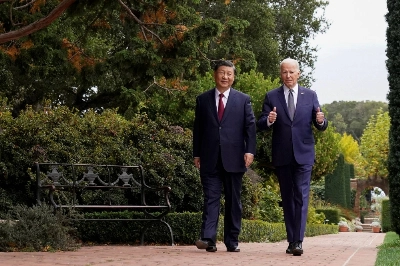Foreign Minister Yoko Kamikawa and U.S. Secretary of State Antony Blinken agreed Friday to continue working together closely on issues related to China, including Taiwan, as Japan’s top diplomat visited Washington for meetings with senior American officials.
According to the Japanese Foreign Ministry, the pair “stressed the importance of peace and stability across the Taiwan Strait and urged a peaceful resolution of cross-strait issues.”
The visit came just hours before voters in Taiwan headed to the polls in a highly anticipated election that will see the democratic island pick a new president and legislators. The poll is widely expected to be condemned by China — especially if Democratic People’s Party candidate and current Vice President Lai Ching-te is elected president.





















With your current subscription plan you can comment on stories. However, before writing your first comment, please create a display name in the Profile section of your subscriber account page.